10 Digital Nomad Jobs for Beginners With No Experience in 2025
Discover how to start your journey as a digital nomad with flexible jobs like freelance writing, virtual assisting, or pet sitting. Ready to work remotely and live freely? Read on!
November 6, 2024
November 4, 2025

Remote work has changed the game as it gives you the freedom to skip long commutes, work from anywhere, and create a schedule that fits your lifestyle. There are many flexible, beginner-friendly jobs like freelance writing or even mystery shopping that you can try in 2025. In these roles, you don’t need years of experience. You just need some basic skills and the right mindset, and you can quickly land your first gig and start working from anywhere.
Who is a digital nomad?
A digital nomad is someone who works remotely while they travel or live in more than one place. They, most of the time, have very few possessions, as they choose freedom over a fixed location. Digital nomads work from anywhere — cafés, co-working spaces, or even their own van — using Wi-Fi or mobile hotspots. They are more prevalent in fields like programming, design, or content creation, and this allows them to embrace a flexible and mobile lifestyle.
Being a digital nomad gives you the ultimate freedom as you can set your own hours, work from anywhere, and balance work with travel. You can structure your day around what you need, not your boss’s schedule. Plus, you save money on commutes, office clothes, and can even live in more affordable places. With fewer office distractions, you’ll likely be more productive, less stressed, and experience better mental health.
Top 10 digital nomad jobs to go for as a beginner
1. Voiceover artist
A voiceover artist uses their voice for projects like commercials, radio dramas, video games, or narrations. This role is especially beginner-friendly because most newcomers start with small gigs on freelance platforms and improve through practice, not formal education. Many voiceover artists build their first portfolio simply by recording short samples at home.
It is a flexible job you can do from anywhere with a basic setup. All you need is a good microphone and a quiet space to work. With some training from experts, you will be able to create professional voiceovers from home or while traveling.
You can find such experts online at websites like John Burr Voice, The Great Voice Company, etc. Coaches charge differently, but according to A VO’s Journey, you should expect to pay between $55 and $125 per hour for a one-on-one VO coaching session. There is no average learning time range to become a VO artist, but if you consistently practice and market your skills, you can become one in a year.
You do not need formal qualifications. However, you must have clarity, good pronunciation, and vocal control. Some artists practice by reading books aloud or mimicking characters to build their skills. You need about $300-$500 to make a basic recording setup, and that makes this job accessible even to beginners.
In terms of pay, voiceover work varies depending on the project. As a beginner, you will earn an average of $29 per hour. If you are looking to find voiceover gigs, you can check out freelance platforms like Upwork and Fiverr. You can also visit Voices.com and Bunny Studio for more specialized jobs.
2. Graphic designer
Graphic design is one of the most accessible digital nomad jobs for beginners, because you can build your first portfolio from small self-initiated projects without any formal training. A graphic designer creates visual content to pass messages through logos, brochures, websites, or ads.
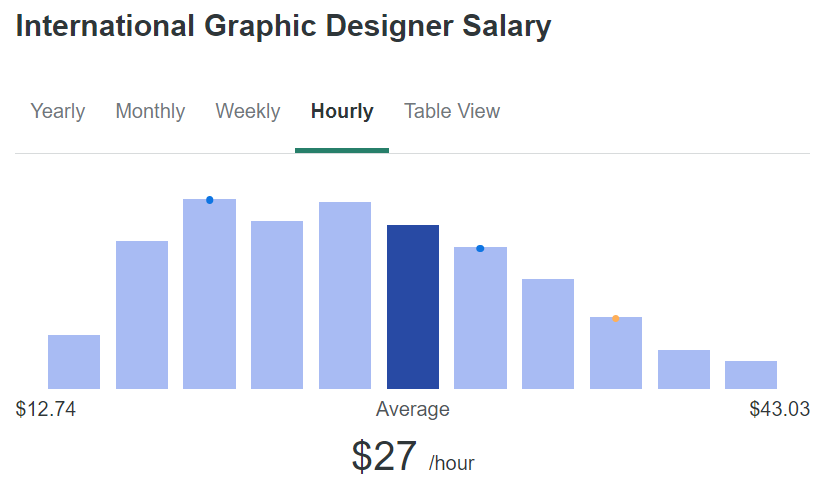
You do not need a formal degree to get started as a digital nomad graphic designer, but you must build a strong portfolio. If you're starting from zero, spend a few hours learning the basic functions of the tools you’ve chosen — Photoshop, Illustrator, or even Canva.
Get familiar with how each Photoshop or Illustrator tool functions. Jump into courses like Fundamentals of Graphic Design and Adobe Graphic Designer Professional Certificate.
Beginners, as usual, start with simple design tasks (social media posts, basic logos, or podcast covers), which makes it easy to land early projects even with a small portfolio.
You can then create sample designs or take on small freelance projects to showcase your skills. To find remote graphic design jobs, visit platforms like Fiverr, Upwork, and 99designs. Starting rates range from $12.74 to $43.03 per hour for beginners, depending on the project and your experience.
The flexibility to work remotely allows you to design from anywhere. There is a growing demand for digital content, and this job offers a steady income and the freedom to work for clients around the world.
3. Online mystery shopper
An online mystery shopper is someone who evaluates the shopping experience on an e-commerce website. This role can be a good entry point for beginners because many mystery shopper tasks develop basic digital skills — evaluating websites, spotting UX issues, and giving structured feedback.
You don’t need any formal qualifications to become one. All you need is basic online shopping experience and a good eye for detail.
To get started, you’ll need a computer and a stable internet connection. Your job is to test all the features of the website, see how easy it is to find products, make purchases, and use customer support. You then report about your experience to the company, giving suggestions on what to improve. Many digital nomads use this role as a simple way to understand how online businesses work and later move into related fields like UX research, customer support, or product testing.

You can find online mystery shopper gigs on sites like Market Force, BestMark, and Secret Shopper. In most jobs, you get paid per task, usually between $10 and $75, depending on how complex the assignment is.
It's also beginner-friendly because companies often provide clear instructions for each task, so you don’t need previous experience to get started.
With this job, you can work from anywhere, and that gives you the freedom to manage your own schedule while you earn. More companies are focusing on how they can improve online shopping experiences, and demand for this role is growing. So, it's a great way to make extra income while on the move.
4. Digital marketing specialist
A digital marketing specialist promotes products and services online through campaigns, social media, and email marketing. If you want to become one, you have to build fundamental skills in content creation, SEO, and social media management.
Digital marketing is beginner-friendly because many core tasks like writing posts, basic analytics, keyword checks, and simple content updates can be learned quickly through free courses and hands-on practice.
I decided to do SEO for two main reasons. Firstly, it combines my two biggest passions: website coding and creative writing. Secondly, because I wanted to work abroad and live the digital nomad lifestyle. SEO allowed me to do that because it's a low-cost business to set up, and you can work from anywhere with just a laptop.
{{John Butterworth}}
You don’t really need a formal degree. However, you will stand out if you have a degree in marketing, business, English, or any related field that enhances your ability to create original, relevant content to promote a business’s products and services. You also must dedicate some time to studying and preparing yourself to become one, as John advised:
If you have never worked on websites before, then I would say it's not the best choice for beginners. SEO requires a lot of studying to learn all of Google's documentation and guidelines for websites. In my experience, it usually takes beginners 1-2 years before they start to generate great results for their clients. My best advice would be to start a website on your own first and practice generating organic traffic to that before offering your services to paying clients.
{{John Butterworth}}
At the same time, many beginners start with simpler marketing tasks — managing social media posts, writing short content, collecting basic analytics — and only later transition into deeper SEO work.
Digital Marketers use tools like Google Analytics, Hootsuite, and Mailchimp to run campaigns and track results.If you’re new, it’s completely normal to begin with small, simple tasks and gradually build toward more advanced marketing or SEO roles as your confidence grows.
On average, a digital marketer can earn around $60,000 a year, but as a beginner, it can be lower, around $30,000. If you want to earn more, you have to gain experience and improve your skills by taking courses like Google Digital Marketing & E-commerce Professional Certificate, The Complete Digital Marketing Course, etc.
You can find remote digital marketing jobs on platforms like Upwork, FlexJobs, and We Work Remotely. These sites help connect you with companies looking for marketers. You can also connect with people around you by attending industry networking events like John did.
I found my very first client by attending a digital marketing networking event in China. I got chatting to an owner of a marketing agency based in Beijing, although the owner himself was British. From there, he introduced me to some other business owners in the area, and I landed my first client through those referrals. Note that before then, I worked for some agencies for low or even no pay sometimes. I just wanted to use those experiences and boost my portfolio.
{{John Butterworth}}
5. Freelance writer/copywriter
A freelance copywriter writes content for clients on a project basis, such as blog posts, product descriptions, or social media captions. This is one of the easiest digital nomad jobs to start with no experience, because clients care more about clear writing and useful content than formal qualifications.
To become a copywriter, you can start by:
- Understanding the basics of copywriting. You need to write clearly and understand what your reader expects — this matters much more than technical perfection. However, copywriting is more than that. You need to deeply understand human psychology and what the specific customers need. Your content must catch the audience, the words have to be well arranged, and you have to include pictures and CTAs that will appeal to your audience. You can learn about these by taking online courses like The Strategy of Content Marketing, Mike Nardi’s Free Practical Copywriting Course, etc. You can then study from established copywriting blogs like Copyblogger and Copyhackers, and then read copywriting books like The Copywriter's Handbook and Scientific Advertising.
- Knowing why companies use writers/copywriters. Part of the needed marketing skills is to know your target audience. When you understand why people need copywriters, you will be able to naturally advertise to those needs. Your employers need content that piques the interests of their customers.
- Choosing and working on your niche. You know the niche you will function best. So, establish yourself there and go for clients that target what you know. For instance, as a nomad, you can focus on writing for travel blogs and the like. Many beginners start with small writing tasks like product descriptions, short blog intros, simple social media copy – this helps build confidence before taking on bigger projects.
- Creating a portfolio. Your portfolio has some of your work samples targeted at what might impress your potential clients. It must have 200-400 words and represent the quality you will offer your clients.
In essence, to become a freelance writer/copywriter, you don’t need a degree, but good writing skills and creativity. That’s why freelance writing is often recommended as a first digital nomad job for beginners.
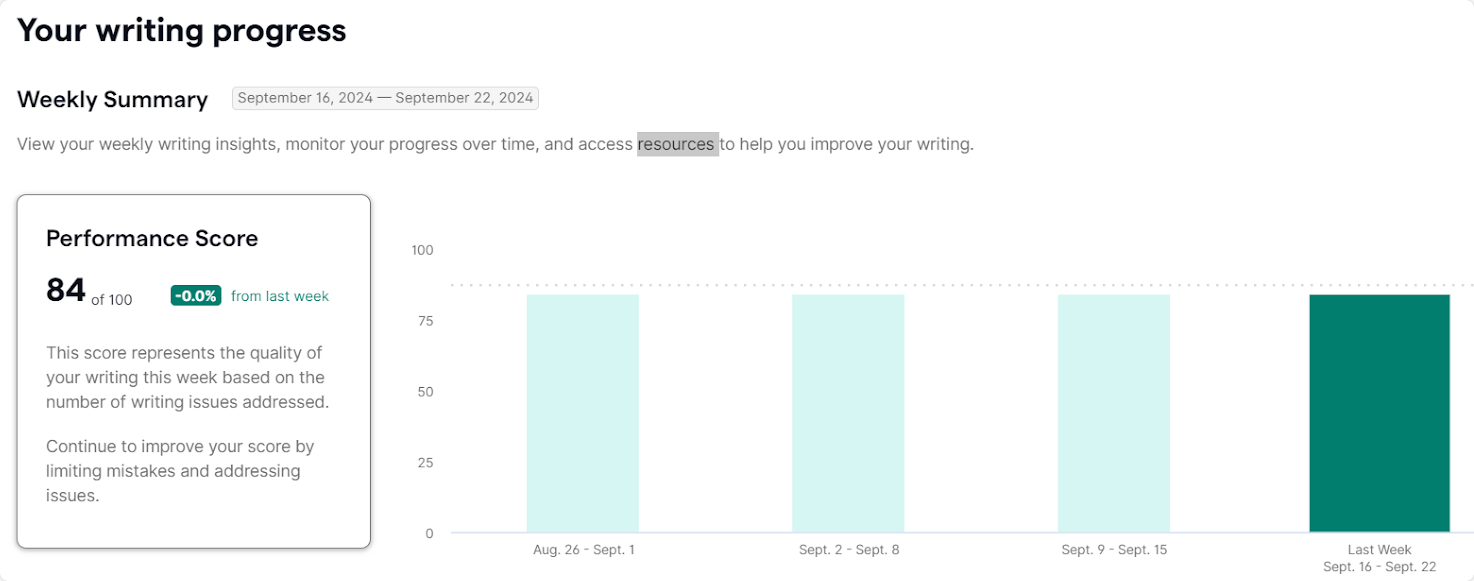
You can use Grammarly to edit and Google Docs to write. They have in-app tools like Grammarly’s “your writing progress”, which monitors your writing progress every week and gives some resources to help you deliver quality work. The average freelance writer can earn between $20 and $45 per hour, depending on experience and the type of writing.
You can find writing gigs on Upwork, Fiverr, and ProBlogger. They connect you with clients seeking writers for different projects. To succeed, build a solid portfolio, manage your time, and continuously improve your writing.
6. Professional meme creator
A professional meme creator is someone who makes funny, relatable images or videos that go viral online. It’s a surprisingly beginner-friendly job because success depends more on understanding trends and human behavior than on formal training or technical skills.
It’s all about creating micro-content that connects with people’s feelings and trends. As Ka5sh, a popular meme creator, said in an interview with NBC News, "It’s all about knowing the trends — knowing what’s funny and what everyone collectively feels about certain things."
Some digital nomads use meme creation as an entry point into social media management or short-form content creation, since the same skills — timing, creativity, and understanding audience reactions — are valuable for brands.
You can become a meme creator by creating and growing your social media account and then using tools like Canva, Meme Generator, and Photoshop to design memes. The needed skills are creativity, humor, and the ability to understand internet culture. The pay varies, but creators can earn between $10 and $50 per gig or more if working with brands.
For beginners, the easiest way to start is by creating memes around trending topics and testing what resonates. Remember: consistency matters more than experience.
To find meme creator jobs, check sites like Upwork and Fiverr or reach out to brands on social media. Many meme creators start by mixing humor with their personal projects, eventually getting paid for their creativity. It’s a fun and flexible job you can do from anywhere.
7. Virtual assistant
A virtual assistant (VA) is someone who helps businesses remotely by managing tasks like scheduling, emails, and customer support. This is one of the most beginner-friendly digital nomad jobs, because many VA tasks are simple, structured, and can be learned quickly without any professional background.
This job gives you flexibility. You can work from anywhere and on your own terms. Here’s how you can become a VA:
- Identify your skills. Focus on tasks you’re good at, like admin work, social media, or customer service.
- Take online courses. You can go to platforms like Udemy or Coursera, which offer courses like Become a Virtual Assistant.
- Set your rates. Start with $12 to $35 per hour, as this is the range, and adjust as you gain experience.
- Build an online presence. Create a profile on Upwork and Fiverr to showcase your skills.
- Apply for jobs. Search job boards like Remote.co and FlexJobs for VA positions.
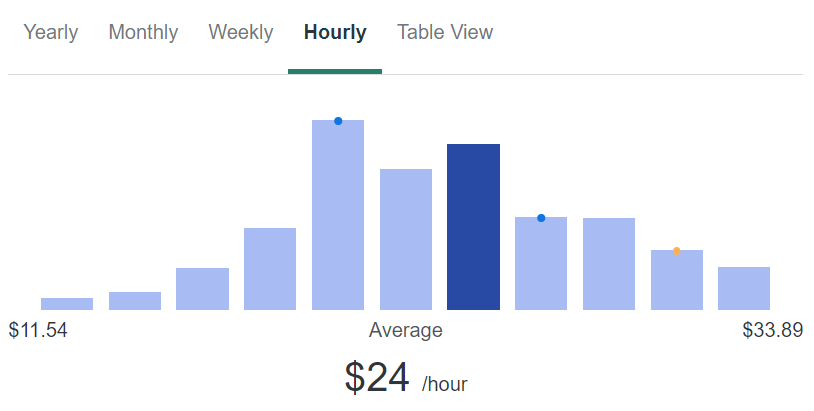
Most beginners start by offering simple services first (inbox cleanup, calendar management, basic data entry) and expand their skill set as they work with more clients. Over time, many VAs move into narrower areas like social media assistance, customer support, content coordination, or project administration. This step may increase rates naturally.
You’ll need tools like Google Workspace (for emails and documents) and Trello or Asana (for task management). Some of the needed skills are organization, time management, and communication.
8. Affiliate marketer
Affiliate marketing is a job where you earn money by promoting products or services and getting a commission, between 1% and 20%, for each sale made through your referral link. The job is beginner-friendly because you don’t need to create your own product — you simply recommend things you already use or like, and earn from each sale.
You can start by choosing a product you believe in, signing up for an affiliate program like Amazon Associates, and then sharing the product links on your blog, social media, or website.
The essential skills you need are communication, marketing, and content creation. You'll also need a website, social media platforms, and affiliate tracking software like Awin. Popular affiliate networks include Amazon Associates, Etsy Affiliates, and eBay Partner Network.
Most beginners start by promoting low-cost or everyday products, since these convert more easily and help you understand which types of content attract clicks.
As you gain experience, you can move from simple referrals to niche websites, long-form reviews, or email marketing funnels. And, of course, all of these can be run entirely remotely.
You can start this job from anywhere, and your income depends on how many people buy from your link. Sites like FlexJobs, ShareASale, and CJ Affiliate are great for finding affiliate marketing opportunities.
9. Pet sitter
Pet sitting is a flexible job where you care for pets in their owners' homes while they’re away. This job is beginner-friendly because most tasks are simple, predictable, and based on basic pet care. You don’t need any specialized training or previous experience.
As a pet sitter, your job is to feed, walk, play with pets, clean litter boxes, and even give medication if need be. Sometimes, you will need to stay overnight to keep the pets company. Most pet sitters manage their bookings and communication entirely online through apps, which makes this role surprisingly compatible with a digital nomad lifestyle.
As a beginner, start with short daytime visits or simple dog-walking requests to build reviews and trust before taking on overnight stays. You can find pet-sitting gigs through Rover, Wag, and Care.com. You don’t need much — just basic knowledge about pet care, a love for animals, and good communication skills to keep owners updated.
Pet sitters usually make $10 to $30 per hour, depending on what they need to do and the location. You can do this from anywhere, and it’s a great way to earn money while on the go.
10. Video editor
A video editor takes raw video footage and turns it into a polished product. The job is beginner-friendly because you can practice on free footage, learn the basics through online tutorials, and start with small projects without any formal training.
As a digital nomad, you can work from anywhere, editing content like YouTube videos, ads, or even films. To get started, you’ll need to learn how to edit videos using software like Adobe Premiere Pro or Final Cut Pro through courses like Adobe Premiere Pro CC Masterclass: Video Editing in Premiere and Complete Graphics Design and Video Editing Masterclass.
Most beginners start by editing short clips for social media, podcasts, or YouTube intros. Such small tasks help you build a portfolio quickly.
You can start the practice by editing free clips or giving free services to small businesses. You don’t need a degree, but a strong portfolio is vital. As you gain confidence, you can move from simple edits to more advanced projects like ads, explainers, or long-form YouTube content, which usually pay higher rates.
Freelancers earn $15 to $50 per hour, depending on experience and complexity.
Websites like Upwork, Fiverr, or Freelancer help you find remote video editing jobs. With practice, good communication skills, and creativity, you can turn this into a full-time digital nomad career.
How to get a digital nomad job as a beginner in 2025

If you're starting from zero experience, this simple 6-step process will help you land your first remote client in 2025:
- Build your skills. You don’t need to master everything — focus on one beginner-friendly skill that matches the jobs listed above. You can use Coursera or Udemy, as they have courses in everything from graphic design to social media management.
- Create a portfolio. Whether you are a writer, designer, or developer, you need a portfolio. Show off your best work online through a personal website or platforms like LinkedIn or Behance. A simple one-page portfolio with 3–5 samples is enough to get your first replies.
- Start small. Initially, you may need to take smaller, low-paying gigs to gain experience or even do it for free. You can start with freelance websites like Fiverr and Upwork. Early small wins matter more than the perfect high-paying gig.
- Network. Most digital nomads get their first clients not from job boards, but from communities — Facebook groups, WhatsApp groups, coworking spaces, and meetups.
- Use remote job boards. Websites like We Work Remotely, Remote OK, and Working Nomads list remote opportunities across all industries. Check them regularly to find gigs. Stick to reputable sites — avoid anything that asks for upfront payment or personal documents before an interview.
- Stay adaptable. Adaptability is one of the top skills remote employers look for in beginners. Be open to trying new things, whether it's a different niche, tactics, or learning new software to fit what a client needs. People have different lifestyles, and your country of residence might be very different, lifestyle-wise, from where you are from, so you must adjust. John himself said he had to make some adjustments in Vietnam.
How every country networks and makes business connections is different. What shocked me about Vietnam, especially, is how much business is done through Facebook and Messenger. My advice here is that you need to adapt to the way things are done in the country you're living in. Do not move somewhere and expect everyone to operate the same way they do back home.
{{John Butterworth}}
With consistent effort, most beginners land their first digital nomad job within a few weeks to a few months. The key is to keep applying and learning as you go.
Soft skills you need as a digital nomad in 2025
These soft skills help beginners stay consistent, especially in the first months of building a digital nomad career.
1. Effective communication and networking
Generally, when working remotely, you must be able to communicate clearly and concisely. Since you won’t be in the same room as your clients or team, you must convey your ideas clearly through emails, chats, or video calls and always keep your client updated. To improve communication, listen actively, ensure you understand what others need, and practice articulation to avoid misunderstandings.
You also have to be an excellent networker. John said this is the most essential skill you need as a digital nomad.
Networking is the most essential skill you need to develop! You can't be shy when you're solo-travelling in a foreign country. You need to get to as many meetups or business events as possible to broaden your network. If not, it can get pretty lonely fast.
{{John Butterworth}}
For beginners, clear communication often matters more than experience. Clients choose people who explain their ideas simply and stay responsive.
2. Self-motivation
You must stay motivated even without a boss keeping tabs on what you are doing. It’s easy to get distracted, especially while traveling. Set specific goals for yourself each day and celebrate small wins to build self-motivation. Use productivity apps like Todoist to keep yourself accountable. If you're starting from zero, self-motivation is often what brings your first real results.
3. Time Management
To balance work and travel, you need excellent time management. You’ll need to place tasks on priority, meet deadlines, and avoid procrastination. To develop this skill, create daily schedules, use time-tracking apps like Trello or Toggl, and always plan ahead to avoid last-minute stress. Many beginners underestimate how much structure remote work requires, so simple routines make a big difference.
4. Adaptability
As a digital nomad, you’ll face constant changes in your environment, from new time zones to unstable internet connections. If you are adaptable, you will be able to adjust quickly and stay productive. You can improve this skill by being open to new experiences and looking for what you must learn from any challenges that come your way. This is one of the top skills remote employers look for, especially when hiring beginners.
5. Organization
It is crucial to stay organized when juggling multiple clients and tasks. To stay on track, keep a detailed to-do list or use task management apps like Asana. Plan your work in advance, break tasks into manageable steps, and never let clutter affect your focus. Even a basic system for tasks and files helps you look professional during your first months as a digital nomad.
These soft skills become especially important in 2025, as remote teams expect beginners to be independent and proactive from day one. See our full list of 12 in-demand freelance skills here.
Start your journey as a digital nomad today
In 2025, starting a digital nomad career has become more accessible than ever, even if you're beginning with zero experience.
My digital nomad adventures have taken me to China and Vietnam, respectively. The transition is always harder when there's a language barrier in place! The best way to overcome that is to find your tribe and build a support network of like-minded nomads in your area. Digital nomad lifestyles can sometimes feel like you're living in a bubble, but connecting with expats who have been there longer than you are is an invaluable resource. And the best part? They are always willing to share their mistakes and experiences with you.
{{John Butterworth}}
If you're just starting out, the most important step is to pick one beginner-friendly skill, build a small portfolio around it, and apply consistently. If you're thinking about relocating while you work remotely, check our full guide to the Spain Digital Nomad Visa — one of the most beginner-friendly relocation options for 2025.
This simple approach works far better than trying to master everything at once. Choose any job from the list above, follow the steps in the beginner guide, and commit at least 30 days to focused practice — most new digital nomads get their first paid project within this timeframe.
Now is the time to dive in if you're ready to ditch the traditional 9-to-5 and explore the world while earning a living. Your first digital nomad opportunity in 2025 is likely much closer than it seems.
FAQ
We are here to ease your working routine
Whether you're freelancing or a full-time contractor, we simplify the working process, putting you in control.
Try it free

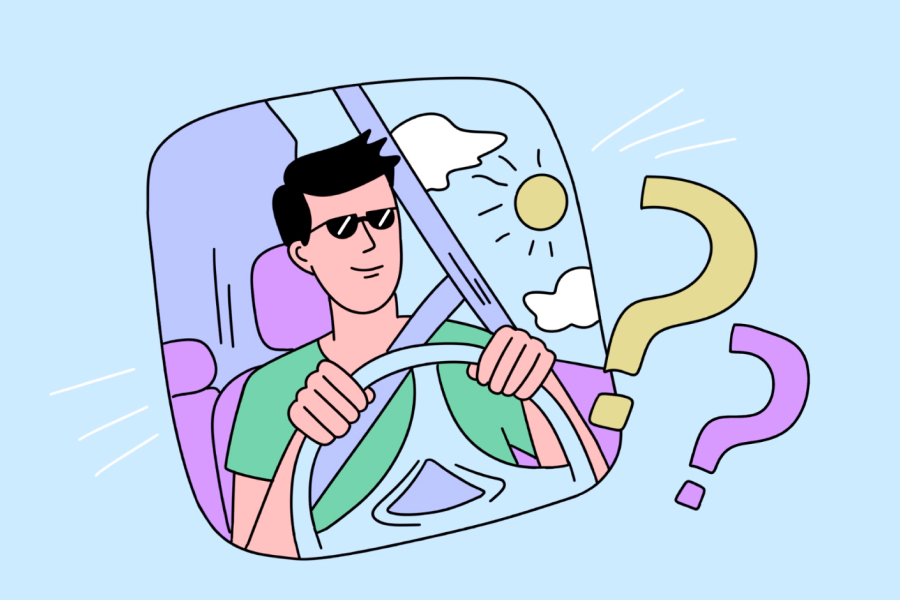
Gig driving is one of the quickest ways to find job opportunities and make extra money. Check our complete guide for independent contractor drivers in 2026, with tips and best practices to help you earn more.
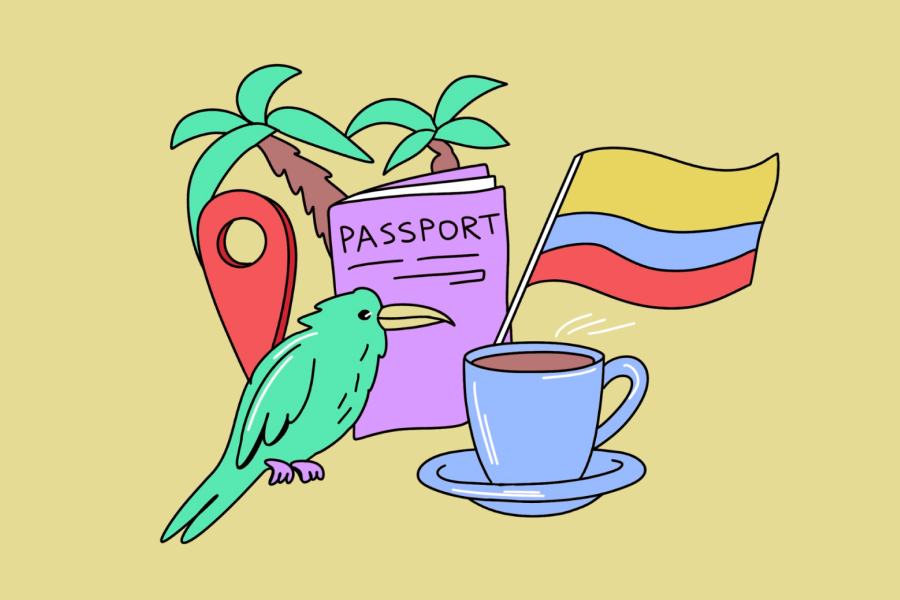
Colombia Digital Nomad Visa: learn how to apply, eligibility requirements, and best spots for remote work in one of the most biodiverse countries.

Discover the essential steps to become a copywriter, from understanding the role and choosing your career path to landing your first clients and scaling your rates. Learn which skills matter most, how to build a portfolio, and practical strategies to grow a sustainable copywriting career in 2026.


.avif)